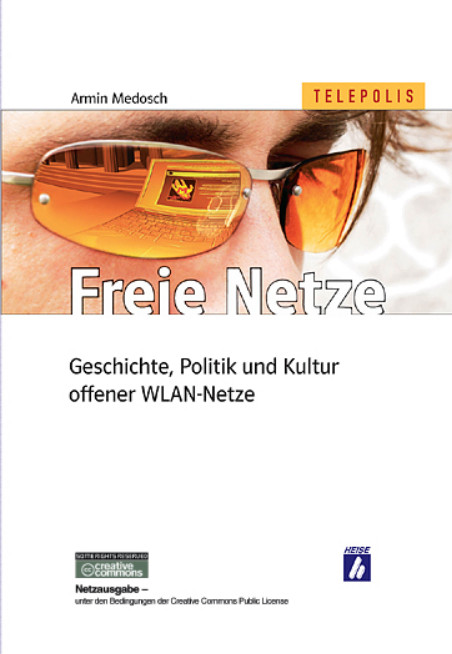Geert Lovink: Dark Fiber: Tracking Critical Internet Culture (2002)
Filed under book | Tags: · activism, cyberculture, internet, media, media activism, media theory, net art, net criticism, network culture, networks, politics, tactical media

“According to media critic Geert Lovink, the Internet is being closed off by corporations and governments intent on creating a business and information environment free of dissent. Calling himself a radical media pragmatist, Lovink envisions an Internet culture that goes beyond the engineering culture that spawned it to bring humanities, user groups, social movements, nongovernmental organizations (NGOs), artists, and cultural critics into the core of Internet development.
In Dark Fiber, Lovink combines aesthetic and ethical concerns and issues of navigation and usability without ever losing sight of the cultural and economic agendas of those who control hardware, software, content, design, and delivery. He examines the unwarranted faith of the cyber-libertarians in the ability of market forces to create a decentralized, accessible communication system. He studies the inner dynamics of hackers’ groups, Internet activists, and artists, seeking to understand the social laws of online life. Finally, he calls for the injection of political and economic competence into the community of freedom-loving cyber-citizens, to wrest the Internet from corporate and state control.
The topics include the erosion of email, bandwidth for all, the rise and fall of dot-com mania, techno-mysticism, sustainable social networks, the fight for a public Internet time standard, the strategies of Internet activists, mailing list culture, and collaborative text filtering. Stressing the importance of intercultural collaboration, Lovink includes reports from Albania, where NGOs and artists use new media to combat the country’s poverty and isolation; from Taiwan, where the September 1999 earthquake highlighted the cultural politics of the Internet; and from Delhi, where a new media center explores free software, public access, and Hindi interfaces.”
Publisher MIT Press, 2002
ISBN 0262621800, 9780262621809
382 pages
Reviews: McKenzie Wark (Rhizome, 2002), Lisa Nakamura (Mute, 2002), Franco Berardi Bifo (Generation Online, n.d.), Catriona Mills (M/C Reviews), Christina Van Houten (Rhizomes, 2009), Kirk McElhearn (Technology & Society, n.d.), Evangelos Milios (Social Science Computer Review, 2003), Arnold Peskin (Journal of Urban Technology, 2003).
PDF (added on 2018-10-24)
Comments (3)Armin Medosch: Freie Netze. Geschichte, Politik und Kultur offener WLAN-Netze (2004) [German]
Filed under book | Tags: · internet, media, network culture, networks, open spectrum, politics, wireless networks

“In den letzten zwei, drei Jahren entstand eine Bewegung, welche die klassische Idee der Freenets, der freien Bürgernetze, mit der Technologie für Wireless Local Area Networks (WLAN) zu verwirklichen versucht. Diese freien drahtlosen Bürgernetze, engl. Wireless Community Networks bzw. Free Networks, die gleichzeitig spontan in New York, London, Seattle, Berlin, Hannover und weiteren Städten entstanden sind, bieten sich als alternative Modelle für eine nachhaltige Informationsökonomie an. Interessante Themen – Stichworte mobiler Lebensstil, War-Driving, Netz-Kartographie, Selbstorganisation und Dezentralität – werden aus einer Insiderperspektive spannend und lebensnah vermittelt.”
Publisher Heinz Heise, Hannover, 2004
Creative Commons BY-NC-ND 2.0 DE License
ISBN 3936931100
240 pages
PDF, PDF (updated on 2015-7-23)
Comment (1)
